|
We asked some of our followers how it came to be that they added a pig to their family and we will be featuring these stories as guest bloggers. This is Erica's story about Herman, the pig that changed her life. Let me add, this is one amazing family. Although they knew nothing about pigs when they got Herman Julian, they vowed to learn about the care of pigs. Herman is one of the lucky ones that bypassed his first birthday and stayed in his home. Bypassed his second and third birthday and stayed in his home. Erica is also a "don't bottle feed piglet" advocate and shares her terrifying story when others are suggesting that it's ok to get a 2 week old pig. Thank you for all you do Erica! I wanted a pig since I was a young kid. I collected EVERYTHING pig oriented. 30 years later I heard a pet store, about an hour from me, had them. I HAD to go see them. Upon entering the store I saw 4 of them in a gated enclosure. They all seemed bigger than I imagined they would be. I was under the false understanding, like most, that these pigs would stay small. I decided that I would have to think things over and come back. I knew I still wanted one, but it made me realize I needed to learn a lot more about them.
After my friend and I left the store we stopped for gas. On entering the store a young man was holding the tiniest little pig. I thought this was a sign. I went and talked to him for a while, and held the baby in my arms. I fell in love! He told me the story of his pig. There was a local "zoo" that had them for sale. He told me that most of them passed away due to malnutrition and the mother not taking care of them. He gave me directions to this "zoo" and my friend and I were on our way. As we pulled up to the place, I was horrified. It was a dilapidated barn with the roof caving in, and an old farmhouse. We proceeded with caution. Right away I saw him! Just him... in a small rabbit cage turned upside down. No food, no water. Only the ground underneath him. I proceeded to get him out. I had to! My friend told me to stop, and he'd look for the person who ran the place. There were cats and chickens everywhere roaming around. My friend proceeded to the farmhouse porch, when a large coonhound ran at him barking and showing his teeth. It almost seemed like a nightmare. All of a sudden an old man came from the house. He called his dog off and came to talk with us. He told me the story of Herman and his brothers and sisters. Only Herm and 2 of his sisters made it. He told me Herm was 6 weeks old and ready to go. He walked us around the horrifying zoo. Animals everywhere, from huge tortoises to coatimundi. They all looked so sad. Small cages. I tried to hide my tears. The man saw and explained to me that he was getting older, and the zoo was getting harder. His kids used to help, but all moved away. He wanted to give up the zoo business, so he was selling what he had left. He asked if we wanted to take a ride on his tractor to see the rest of the animals. I had to decline. There was no way I could see any more animals in that condition. We discussed Herman and how much he cost. I explained that I did not have cash, and the man made a deal with me. He said I could take him for the night. If I wasn't satisfied, I could return him the next day. If I decided to keep him, I could bring him $50 the next day. I already knew I was keeping him no matter what, but agreed that I would do that. The first night... well actually month was HELL. He would scream all night. He didn't eat. I thought it was because he was scared, and I planned to do research the next day. When we returned the next day to give the man the payment I decided to wait in the car with Herman. I couldn't stand to see anymore of the zoo. When my friend returned he told me the man was very gracious that we returned to give him money. He said he assumed we wouldn't. He also let me know that Herman was in fact 2 weeks old, and not 6 like the man told us the day before! I started my research the moment I got home. My first lesson was learning Herm shouldn't have even left his mom. He wouldn't eat. For a whole week, Herm wouldn't eat! I tried everything, even a bottle. Which now learning from our pig group could have been his death sentence. He was so small, and would just lay in his bed, or mine and scream constantly. It finally came the time where I thought he wasn't going to make it. I knew I had to do something. I made a combination of baby rice cereal and goats milk. It was like Herman already knew that it would be delicious. He jumped up and gobbled it up! It made me so happy!!! It has been heaven and hell with Herman, but I love him. He is my family. We have gone through so much together, and I wouldn't trade him for anything. I wish I would have known all that I know now; so he would have had a better start. I am just happy he made it through. About a month ago I drove past that old zoo. It still looks like hell, but I don't see as many of the animals as he had before. I hope he retired from that career! I'm just happy that he brought Herman and me together. Written by: Erica Kaufman
16 Comments
Like a cat's whiskers, a pig's snout provides the animal with heightened senses to navigate and interact with the environment, and is especially designed for rooting in the ground in search of food. Under natural conditions, pigs may spend 75% of their daily activity engaged in rooting and foraging for up to 6-8 hours a day. Maybe some of your pigs do not get to spend that amount of time outdoors being a "pig", if not, you may notice some rooting activity going on INSIDE the home.
Pigs also have 3-4 times more tastebuds than humans: "The pig differs, however, from most mammals in the number of taste buds, which exceeds most species, including the human... The discrepancy between the human taste apparatus and that of the pig becomes even more evident when one compares the 1600 human fungiform taste budswith the 5000 found in pig. As a result of this, the pig tongue has three tofour times more taste buds than the human tongue (J. Anim. Physiol. a. Anim. Nutr. 82 (1999), 8–24 Receipt of Ms.: 12. 10. 1998© 1999 Blackwell Wissenschafts-Verlag, BerlinISSN 0931–2439)." Pig owners should keep in mind that mouthy/biting behavior in pigs, especially young pigs, goes right along with rooting/nosing behavior and isn't necessarily related to aggression. Toddlers explore with their hands- pigs explore with their mouths and snouts! ~Jane McPherson If your pig isn't getting the appropriate amount of time outdoors to root around and be a pig, you may notice areas INSIDE that your pig is treating as their own rooting ground. They have the need to satisfy this desire to root, if they cannot go outside and dig in the dirt, they will find other ways to root. Pigs will root and dig **PLEASE DO NOT PUT A RING IN YOUR PIG'S SNOUT!!!!! If you want a pristine yard, do NOT get a pig! Part of being a pig parent is understanding that they NEED outside time and WILL dig and create holes in the yard. If you need to, create a space for your pig to dig, but do NOT punish your pig for acting like a pig.
Nutrition and Feeding
Good nutrition is essential for a healthy pig. Nutrients in pig foods should provide what is needed for metabolic body processes and should help fight off disease and provide the body with what it needs to function properly. Proper feeding habits with nutritious food on a regular schedule can prevent:
Improper feeding habits can cause or contribute to:
Many animals die each year from such diseases. Avoid table scraps, high fat foods, and foods that cause choking. Your pets should be offered foods developed for them or recommended by your veterinarian. Please see our nutrition section for pig appropriate foods by clicking here. Provide Plenty of Clean Water All animals, especially the very young and the very old, are susceptible to dehydration and kidney disease if deprived of water, quickly leading to serious complications. Water deprivation has claimed many pigs’ lives over the last several years. ALWAYS be sure to have a fresh water source for your pig. Click here to read more about water deprivation and treat should this occur. Nutritious food and clean, fresh water are important to your pig's health! Avoid Vigorous Exercise after Meals Vigorous exercise after meals can lead to a life-threatening condition called bloat, which can technically happen to many different species of animals. With early and aggressive medical and surgical treatment, 80% or more of these patients survive this horrible condition. I have heard of this in other animals, especially larger breed dogs, but given the pigs anatomy and sudden hyperactivity they sometimes have, I thought it was important to at least mention this here as a possibility so you are aware. Safe Environment Unsafe situations may occur in your pig's surroundings, even with animals that are confined to the house or an outside run. A responsible pet owner should always have control of their pig and their pig's environment. Injury or death after being hit by a car or being attacked by another animal can be prevented if your pig is properly controlled and/or properly contained. Your pig may be injured or shot if allowed to wander unrestricted. Controlling your pig and providing a safe home can eliminate several dangerous situations. Remember, dogs are natural enemies to pigs. Click here to read more about the dangers of dogs and pigs. Temperature Animals usually have more problems in hot environments than in cold. Pigs can suffer heat prostration and die in a short period of time, even minutes, under severe conditions. Good ventilation is vital. Animals typically cool themselves by panting, which becomes inefficient in extreme heat, poor ventilation, or when dehydration causes a lack of moisture on the tongue. Panting is NOT how pigs cool off. Pigs need an area that is shaded and/or a fresh water source like a kiddie pool to cool off in. Some pigs will stay inside the poorly ventilated house outdoors because they feel safe in there, so be sure to check up on your pig often in extreme weather. If it is absolutely necessary to leave your pet in the car, even for a short time, keep the windows partially open. In the summer, the car's interior can quickly rise to over 150°F, and your pet's body temperature may rise to 110°F or more, causing irreversible brain damage and/or death within minutes. It is NOT advisable to leave your pig in the car for any amount of time unsupervised. Click here to read more about seasonal safety and pigs and the importance of cooling systems and providing an outlet for your pig to cool down. Exercise Your pig(s) need room to move around safely to get exercise. Provide an area with adequate room, shelter, and bedding that can be cleaned. Lots of space to exercise, some toys, and clean, comfortable bedding are some simple things that can add years to your pig's life. Outdoor time is especially important so your pig has the opportunity to be a pig. Pigs need to root and play in the dirt and when pigs are not given this opportunity, they tend to have behavioral problems and have been known to be quite destructive. Click here to read more about enrichment ideas for pigs. Harness Hazards Confinement created by a harness getting stuck on something can potentially lead to your pig being choked by the leash or poorly fitted harness. Do NOT leave harnesses on pigs and let them out for the day. Don’t put a harness on a pig and leave the pig in your home for the day. If there will not be someone home, take the harness off. Click here to find a pig specific harness to avoid ill-fitting harnesses. Proper Identification Remember to have ID on your animal; people will usually return your pet if your phone number is provided. Also, if your animal is injured and transported to a veterinarian by someone else, the doctor can reach you for medical decisions. Proper identification tags and/or microchips will help you recover your pet if he wanders off. Electric Cords Electric cords should be inaccessible to pets, especially in piglets, which tend to chew on anything. A bite through the insulation can result in a serious burn, fluid accumulation in the lungs, or death. Dangling electric cords are an irresistible (but dangerous) temptation to a playful piglet. Make sure all cords are inaccessible! Choking Many common household items can cause your pet to choke:
These items should be kept away from pets, as ingesting them may cause foreign body blockages or injuries to the esophagus, stomach or small intestine. Make sure that small household items are kept in a place that your pig(s) can't reach! Click here to read about how to potentially save your pigs life in an emergency situation like this by clicking here. Spaying/Neutering This is not optional, this is a must for a pig parent. Intact pigs can be unpredictable, males tend to smell, both usually have some form of behavioral problems and both sexes are at risk for developing potentially life threatening tumors in the reproductive organs. Spay and/or neuter while they're young. You'll be glad you did it. To read more about these procedures, click here to see our page dedicated to answering any questions about these life altering procedures. Poisoning Accidental poisonings can be tragic. Guard against ingestion of:
Ask a professional before administering drugs of any kind to your pet. Do NOT give activated charcoal or induce vomiting without first consulting a vet or pet poison control center for instructions. Click here for a more complete list of pig toxicities as well a information about activated charcoal, mineral oil, the use of medications to induce vomiting, etc. Traveling Animals must be contained while riding in a car or truck. Pigs should be contained in such a way that he/she isn’t given free roam of the vehicle. This is not only for your safety, but also your pigs safety. Click here to read more about traveling with your pig and the regulations you MUST follow when crossing state lines. What happens if you should need to slam on the breaks? Your pig will fly out of the seat onto the floor or even worse, through the windshield if not contained. We recommend that pigs not ride in the back of trucks. In some states it is illegal for a animal to ride in the back of a pick-up truck. Besides the risk of injury from a fall, the pig may be killed in traffic. Even crated pigs have a risk of being hit with highway debris riding in the back of uncovered trucks. Regular Veterinary Check-Ups Regular veterinary examinations will help avoid some preventable disease problems and permit early detection of others, thus facilitating treatment. Your veterinarian should see your pet at least once a year. During the check-up regular vaccinations are given and the animal is given a physical exam, a dental check-up, and teeth cleaning. Now is also a good time to discuss pet insurance. There are a couple of insurance providers that will cover pigs. These policies typically cover wellness check ups and sometimes even spays and neuters! Click here to be directed to the known companies that will cover mini pigs. You should also discuss dental care and hoof care during these wellness check up visits. You can click here to read more about hoof maintenance. Your pet's annual physical examination is vital for continued good health. Parasite Control Parasite control needs to be done routinely, every 6 months is a good schedule for regular deworming and parasite treatment. Click here to read more about parasite control. (Remember, this should be done using BOTH medications, Fenbendazole and Ivermectin to truly cover all the potential parasites) Vaccination Programs Many dangerous infectious diseases can be prevented or lessened in severity with a proper vaccination program. No vaccine is 100% effective, but regular vaccinations are the most effective way to prevent such diseases. Click here to read our page dedicated to discuss vaccinations. Approved vaccines are available for the following diseases: (Talk to your vet about what would be appropriate for your pig) Pigs
With so many formerly deadly diseases now preventable by vaccination, you owe it to your pig to make sure she is up on her booster shots. Consult your veterinarian for the vaccines needed in your area and a proper vaccination schedule. Dental Health Dental problems that go untreated not only cause problems in the teeth and gums, but the effects may extend to other areas of the body. Click here to read more about dental care and pigs.
Good oral hygiene and regular veterinary examination and treatment can eliminate dental problems. Dental health and good overall health go hand in hand. Prevention: A Final Note Seek professional veterinary help immediately if your pet suffers an accident or illness. Getting help early prevents complications and more suffering. Waiting can only result in undue worry, serious deterioration of conditions, and make recovery more difficult. To find a vet that will see your pig, please reference our vet list with more than 1,000 vets that will see pigs as patients. you can access that list by clicking here. There are a few laws that affect pet pigs and you may have heard of some of them, but likely were not thinking outside the box to realize there are several more that may apply. You don't have to be a professor at a big University that teaches law to know that you have rules and regulations, as well as laws, if applicable. We have selected a few laws that may apply to you when you have an unconventional pet, such as a pet pig. 1. Wills and Estates Law There was a case in NY several years back about a dog and the dog parent leaving ALL of her estate to the dog. Although contested, the family was quite shocked to find out that her will was legal and enforceable. The family contested, of course, and although they did win a portion, the bulk of her estate did, in fact, go to her dog. (If I am remembering all the facts correctly). This is an issue for a number of reasons...First, be sure to include your pig in any last will and testament you may have on file, including designation to who will care for your pig once you are no longer here to do so yourself. If you have assets, leave financial support for the care of your beloved porcine friend. Second part is to keep this document updated. It will do no good to name someone who is no longer with us. This is important for anyone who has a pet pig, but probably more-so for the rescue community who have large numbers of pigs that will need to be cared for long after they're gone. Always have back up plans for back up plans. 2. Travel Laws We have said it before and now saying it again, you MUST check with the state you are traveling into to see what laws/regulations are in effect for pigs in that state. Some states require visible identification, some require blood tests such as brucellosis and pseudorabies before they will permit a pig to cross the state lines, others may simply require a CVI (certificate of veterinary inspection) also referred to as a health certificate. Whatever the regulations are, be sure you follow them. Click here to be directed to the USDA travel guidelines. The reason for these rules and regulations is actually to protect YOUR pig as well as other pigs from disease that can be carried over by an infected pig. This is also why the penalties are so steep for violations of these rules. 3. Zoning Restrictions Each state is different in their ordinances regarding keeping pigs within city limits. Each county may have conflicting ordinances within the same state, but you MUST follow YOUR city/county/town ordinance. Many people have waged wars with their cities to try and have the ordinance amended to allow pigs to reside within the city limits. Some people have successfully had the ordinance changed or amended and some have not been successful. It is not worth the fight if you can find out beforehand or try and have the ordinance changed BEFORE you add a pig to your family. There is a lot of disappointment and heartbreak when you get a pig, find out the city doesn't allow pigs in the city and then have to find a new home for your beloved pet. Click here to read more about how to check and see if you're zoned to have a pig and also how you can work to change the city ordinance. All it takes is one jerk person to call and "report" you in order to get the wheels of justice moving. Do not get a pig if you have to hide it. That isn't good for you, your family or your pig. HOA (homeowners associations) can also impact whether or not you are "allowed" to have a pig. Do not sign HOA paperwork that isn't clear on what is traditional and what is not. Sometimes the wording doesn't include or exclude pigs, but you need to be sure of what is included so you can avoid a court case to try and fight to keep your pig. 4. Divorce Law Pigs are like our children and we will fight to protect them as such. If there are 2 loving pig parents and the possibility y'all will not live happily ever after, try to come to some kind of agreement prior to the nastiness of a divorce to determine who will retain custody of the pig(s). Pets have been included in prenuptial agreements in the past, although typically this refers to cats and dogs, we are pig people, so we encourage you to take in consideration your pigs thoughts and feelings too. Of course, neither kids nor pets can be split into pieces and distributed between the disagreeing parties to a divorce. Therefore, judges are being presented with, and many are approving, shared animal custody or visitation rights for husbands and wives, domestic partners and even roommates when they are faced with pet custody disputes. 5. Corporate Law It can be big local news when a farmer is caught neglecting or abusing his farm animals. The local humane organizations and the animal control officer might show up and take the cattle, horses or sheep to a rehabilitator or foster home, but there usually isn’t a great deal of money involved. The situation is different, however, when some Fortune 500 company is accused of the same — that’s national news. At one time, virtually no one had the resources to challenge a big company such as a billion-dollar, publicly held fast-food chain if one of these companies was caught treating food animals in an inhumane way. But now, very well-funded humane organizations and animal rights groups are pursuing (and winning) animal cruelty cases against these very large defendants. And now that big-money cases and large potential jury awards have begun to revolve around animals, you can be sure that corporate attorneys are generally paying much closer attention to the precise meaning of animal-protection legislation. They want to know every nuance of these laws’ applicability to the millions of food animals under the control of their corporate clients. We see this mainly in the farming community, but there has been abuse/neglect/fraud in the pet pig world too. 6. Bailment Law This is a legal concept that basically means that when the property of another person is placed in your hands, you have a duty to care for it and return it to its owner undamaged. For example, a "bailment" is created when a valet parks your car or when you check your luggage at the airline counter. So, in the world of animals, what happens when Mr. Smith drops piggyy off to be groomed one morning at the local pet groomer and Mrs. Smith picks piggy up in the afternoon? There was never a problem when this happened for piggy’s first few grooming appointments. This time, though, the pet groomer had no idea that the Smiths have become legally separated. Imagine the horror when Mr. Smith comes in to collect piggy and his pet is no longer there! The grooming business owner might not care that the Smiths are tied up in a terrible legal battle. What she should be concerned about is if she doesn’t carry bailment insurance and now has to defend herself and her business in a lawsuit lodged by Mr. Smith for his “suffering and anguish” attributable to her having relinquished his property - piggy - to someone not authorized to possess the pig. Same thing applies to boarding an animal. When you drop off your pig to be boarded for a week, you expect to return to a healthy and happy pig, what happens if thats not the case? What happens if your boarding facility neglects your pig resulting in your pigs death? They are liable. 7. Personal Injury Law You may have the Best. Pig. Ever. BUT, if your pig is at a community event and gets agitated because some kid keeps putting their hands in its' face, your pig may headswipe or even bite...are you responsible? Of course you are. First, be sure your pig is vaccinated against any disease that can be passed via an animal bite, like rabies to lessen the chances of something bad happening to your pig because of an accidental or even purposeful bite. Second, if your pig tends to bite, do NOT do community events! Do not set your pig up for failure by placing him/her in an environment with a lot of people if your pig is socially standoffish. Third, do stand there with your animal and remove your pig from the premises if you can see your pig is frustrated. Place signs on your pigs area cautioning people that your pig will bite if provoked. Do NOT let young children handle your pig without you being present or literally holding the pig while they gently pet the back or leg while your have a firm grip. However, again, if your pig is not trained and socially inept, do NOT take your pig to events like "kiss the pig" or similar situations where your pig is expected to preform a service or act in a certain way for an audience. If your pig is not used to dealing with the public and seems a bit skittish, you will need to work more with your pig before having expectations of your pig being in the spotlight and being successful. 8. Property Damage If you are a renter, this may be applicable to you. ALWAYS take pictures and do an inspection before you move in noting any areas of concern. Be sure your landlord knows you have a pig and you have written permission to have a pet pig in a rental home. There may be preexisting damage that your pig didn't do, that you are being blamed for. Pigs dig, pigs root, pigs will tear up walls and floors. Pigs will accidentally break doors where food is stored. Pigs will accidentally remove flooring when they're bored. Just know these things can happen with a pet pig and if you're visiting someone or renting a home, you may be on the line for damages as a result of your pig being in that home. Always keep an eye on your pig in unfamiliar areas and provide enrichment to bored pigs. This will lessen the chances of destruction caused by YOUR pig and hopefully, in turn, reduce your liability in regards to damage that could be caused by your pig. Always do a routine inspection of the area inside and outside of your house to easily identify possible toxins and removal of these potentially hazardous items from your pigs environment. See our blog from last week that discusses bored pig problems and solutions by clicking here. We’ve just touched on a few of the basic areas where animals impact the law and vice versa, but there are many others. The message here is that, in a legal sense, owning, caring for or even just interacting with animals has become increasingly complicated in recent years. It pays to be aware of the laws and what your risks and rights are depending on your role and always err on the side of caution when it comes to you and your pig. Always know what the laws are in YOUR area, protect your pig.
|
AuthorsBrittany Sawyer Archives
July 2019
Categories
All
|
-
- Direct Links To Website Content
- Read BEFORE You Add A Pig To Your Family
- Mini Pig Info Mission
- Teacup/Micro Pig Myth
- What Is A Mini Pig?
- Mini Pig Breeds: Which Ones Are Really Breeds?
- Adoptable Mini Pigs
- Are You As Smart As Your Pig?
- Mini Pig Info Education Series
- Social Media Feeds
- Zoonotic Diseases & Mini Pigs
- Mini Pigs Are NOT Gifts!
- Media/News Links
-
- Pig Health Forms: Tools To Use To Determine If Your Pig Is Sick
-
- Mini Pigs & Erysipelas: Life Saving Info About This Disease
- Dippity Pig Syndrome In Mini Pigs
- Mini Pig Salt Toxicity/Water Deprivation
- Leptospirosis In Mini Pigs
- Swine Pox & Mini Pigs
- Gastric Ulcers: Common Problem For Mini Pigs
- Brucellosis And Mini Pigs
- Mini Pig Pneumonia & Swine Flu
- Foot and Mouth Disease (FMD): A Problem For Pigs In Other Countires
- Pseudorabies: Is My Mini Pig At Risk?
- Mycoplasma Hyosynoviae & Mini Pigs
- Head Tilt In Mini Pigs
- Mini Pig Obstructions: How To Reduce The Risk For Your Pig
- Seizures In Mini Pigs
- Mini Pig Salmonellosis
- PSS (Porcine Stress Syndrome)
- Urinary Tract Infections (UTI) In Mini Pigs
- Urinary Blockages: A Serious Problem For Mini Pigs
- Arthritis And Mini Pigs
- Mini Pig Artophic Rhinitis
- Mini Pig Heart Disease Possibilities
- Common Mini Pig Gastrointestinal Disorders
- Mini Pigs & Pasteurellosis
- Mini Pigs And Rabies
- Mini Pig Genetic Abnormalities
- MIni Pigs & Cancer
- Mini Pig Cough
- Causes For Sudden Death In Mini Pigs
-
- Mini Pig Approved Foods
- Natural Diet For Mini Pigs: How To Create A All-Natural Diet For Your Pig
- Balancing Your Mini Pigs Diet With Activity
- Mini Pig Feed Concerns: Bad/Spoiled Feed
- Mini Pig Nutritional Deficiencies
- How To Estimate A Pigs Weight Without A Scale
- Mini Pig Body Scoring: What Does An Unhealthy Mini Pig Look Like?
- How To Help Your Mini Pig Lose Weight
- Mini Pig Treats And Recipes
- Mini Pig Hydration: The Importance Of Water
-
- Mini Pig CPR/Heimlich Manuever
- Mini Pig Constipation
- How To Treat A Vomiting Mini Pig
- What To Do If Your Mini Pig Gorges On Food?
- Salt Toxicity/Water Deprivation In Mini Pigs
- How To Treat A Fever In Mini Pigs
- Basic Wound Care For Mini Pigs
- Acute Mini Pig Paralysis
- Mini Pig Shock
- What To Do If Your Mini Pig Sustains A Fracture?
- Treatment For Mini Pig Diarrhea
- Hidden Dangers For Mini Pigs: Snakes & Spiders
- Mini Pig Emergency Supplies
- Most Common Mini Pig Problems
-
- Underaged Piglets- The Dangers & Amount Of Care Involved
- How To Estimate The Age Of A Mini Pig
- Mini Pigs and Dogs- Predator Versus Prey- A Risky Combination
- Mini Pig Name Suggestions
- Bathing Mini Pigs
- Mini Pig Travel Regulations
- Mini Pig FAQ
- "Forking" Mini Pigs- No, We Aren't Talking About Eating!
- Mini Pig Potty Training Tips
- Pigs And Stairs: A Potentially Flawed Living Arrangement
- Capturing A Mini Pig On The Loose
- Indoor Mini Pig Spaces
-
-
- Mini Pig Sounds 101
- Mini Pig Harness Training
- Important Information & Tips For Training Your Mini Pig
- Teaching Your Pig To Do Tricks
- Decoding Mini Pig Behavioral Problems
- Mini Pig Behavior: A Quick Introduction
- Common Behavioral Issues In Mini Pigs
- Move The Pig By Lydia Weaver
- Food Aggression In Mini Pigs
- Aggressive Mini Pigs
- Spoiled Pig Syndrome
- ESA (Emotional Support Animals)/Therapy Pets And Service Animals: What Applies To My Mini Pig?
- Mini Pigs Can Be Fun: Training Your Pig Is Key!
-
- Mini Pig Themed Greeting Cards
- Mini Pig DIY Items: Ideas & Inspiration
- Mini Pig Community Chat Forum
- The Loss Of Your Mini Pig
- Website Survey & Various MPI Video Collection
- Mini Pig Research/News Links
- PAL (Pig Advocates League): Our Nonprofit Sister Organization
- Kids Corner: Mini Pig Items For Kids
- Mini Pig Meme's:
- Mini Pig Sitters
- Mini Pig Outreach-Educational Information
- Community Groups For Mini Pig Parents
- "Pigtionary"
- Pig Anatomy and Terminology
- Mini Pig Info Store
- Dear Pig Whisperers Blog
-
- Direct Links To Website Content
- Read BEFORE You Add A Pig To Your Family
- Mini Pig Info Mission
- Teacup/Micro Pig Myth
- What Is A Mini Pig?
- Mini Pig Breeds: Which Ones Are Really Breeds?
- Adoptable Mini Pigs
- Are You As Smart As Your Pig?
- Mini Pig Info Education Series
- Social Media Feeds
- Zoonotic Diseases & Mini Pigs
- Mini Pigs Are NOT Gifts!
- Media/News Links
-
- Pig Health Forms: Tools To Use To Determine If Your Pig Is Sick
-
- Mini Pigs & Erysipelas: Life Saving Info About This Disease
- Dippity Pig Syndrome In Mini Pigs
- Mini Pig Salt Toxicity/Water Deprivation
- Leptospirosis In Mini Pigs
- Swine Pox & Mini Pigs
- Gastric Ulcers: Common Problem For Mini Pigs
- Brucellosis And Mini Pigs
- Mini Pig Pneumonia & Swine Flu
- Foot and Mouth Disease (FMD): A Problem For Pigs In Other Countires
- Pseudorabies: Is My Mini Pig At Risk?
- Mycoplasma Hyosynoviae & Mini Pigs
- Head Tilt In Mini Pigs
- Mini Pig Obstructions: How To Reduce The Risk For Your Pig
- Seizures In Mini Pigs
- Mini Pig Salmonellosis
- PSS (Porcine Stress Syndrome)
- Urinary Tract Infections (UTI) In Mini Pigs
- Urinary Blockages: A Serious Problem For Mini Pigs
- Arthritis And Mini Pigs
- Mini Pig Artophic Rhinitis
- Mini Pig Heart Disease Possibilities
- Common Mini Pig Gastrointestinal Disorders
- Mini Pigs & Pasteurellosis
- Mini Pigs And Rabies
- Mini Pig Genetic Abnormalities
- MIni Pigs & Cancer
- Mini Pig Cough
- Causes For Sudden Death In Mini Pigs
-
- Mini Pig Approved Foods
- Natural Diet For Mini Pigs: How To Create A All-Natural Diet For Your Pig
- Balancing Your Mini Pigs Diet With Activity
- Mini Pig Feed Concerns: Bad/Spoiled Feed
- Mini Pig Nutritional Deficiencies
- How To Estimate A Pigs Weight Without A Scale
- Mini Pig Body Scoring: What Does An Unhealthy Mini Pig Look Like?
- How To Help Your Mini Pig Lose Weight
- Mini Pig Treats And Recipes
- Mini Pig Hydration: The Importance Of Water
-
- Mini Pig CPR/Heimlich Manuever
- Mini Pig Constipation
- How To Treat A Vomiting Mini Pig
- What To Do If Your Mini Pig Gorges On Food?
- Salt Toxicity/Water Deprivation In Mini Pigs
- How To Treat A Fever In Mini Pigs
- Basic Wound Care For Mini Pigs
- Acute Mini Pig Paralysis
- Mini Pig Shock
- What To Do If Your Mini Pig Sustains A Fracture?
- Treatment For Mini Pig Diarrhea
- Hidden Dangers For Mini Pigs: Snakes & Spiders
- Mini Pig Emergency Supplies
- Most Common Mini Pig Problems
-
- Underaged Piglets- The Dangers & Amount Of Care Involved
- How To Estimate The Age Of A Mini Pig
- Mini Pigs and Dogs- Predator Versus Prey- A Risky Combination
- Mini Pig Name Suggestions
- Bathing Mini Pigs
- Mini Pig Travel Regulations
- Mini Pig FAQ
- "Forking" Mini Pigs- No, We Aren't Talking About Eating!
- Mini Pig Potty Training Tips
- Pigs And Stairs: A Potentially Flawed Living Arrangement
- Capturing A Mini Pig On The Loose
- Indoor Mini Pig Spaces
-
-
- Mini Pig Sounds 101
- Mini Pig Harness Training
- Important Information & Tips For Training Your Mini Pig
- Teaching Your Pig To Do Tricks
- Decoding Mini Pig Behavioral Problems
- Mini Pig Behavior: A Quick Introduction
- Common Behavioral Issues In Mini Pigs
- Move The Pig By Lydia Weaver
- Food Aggression In Mini Pigs
- Aggressive Mini Pigs
- Spoiled Pig Syndrome
- ESA (Emotional Support Animals)/Therapy Pets And Service Animals: What Applies To My Mini Pig?
- Mini Pigs Can Be Fun: Training Your Pig Is Key!
-
- Mini Pig Themed Greeting Cards
- Mini Pig DIY Items: Ideas & Inspiration
- Mini Pig Community Chat Forum
- The Loss Of Your Mini Pig
- Website Survey & Various MPI Video Collection
- Mini Pig Research/News Links
- PAL (Pig Advocates League): Our Nonprofit Sister Organization
- Kids Corner: Mini Pig Items For Kids
- Mini Pig Meme's:
- Mini Pig Sitters
- Mini Pig Outreach-Educational Information
- Community Groups For Mini Pig Parents
- "Pigtionary"
- Pig Anatomy and Terminology
- Mini Pig Info Store
- Dear Pig Whisperers Blog

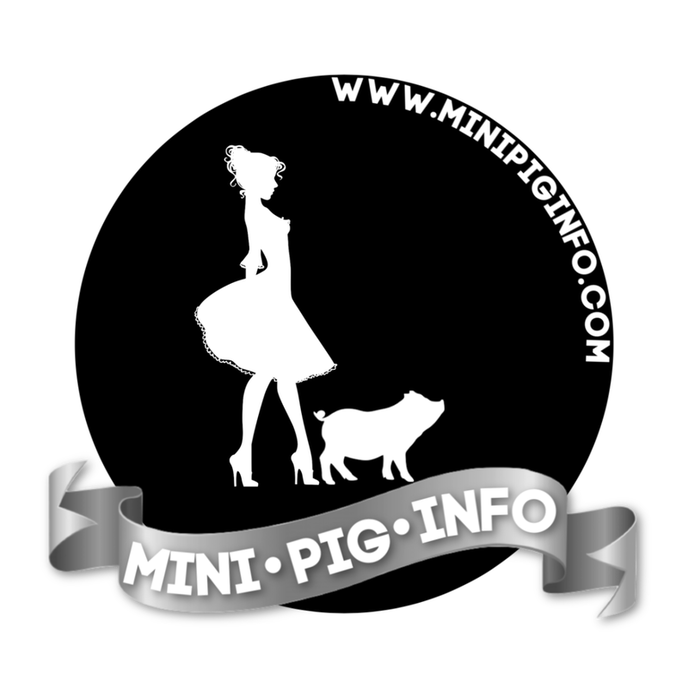
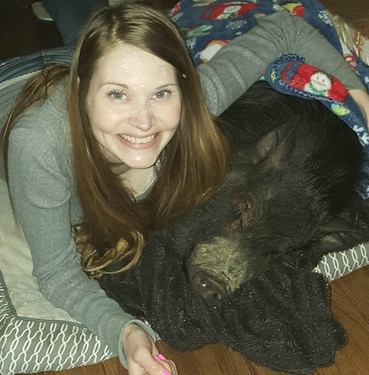
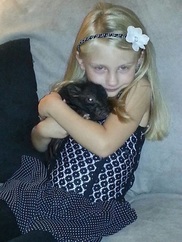
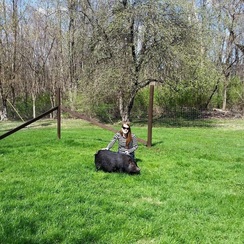
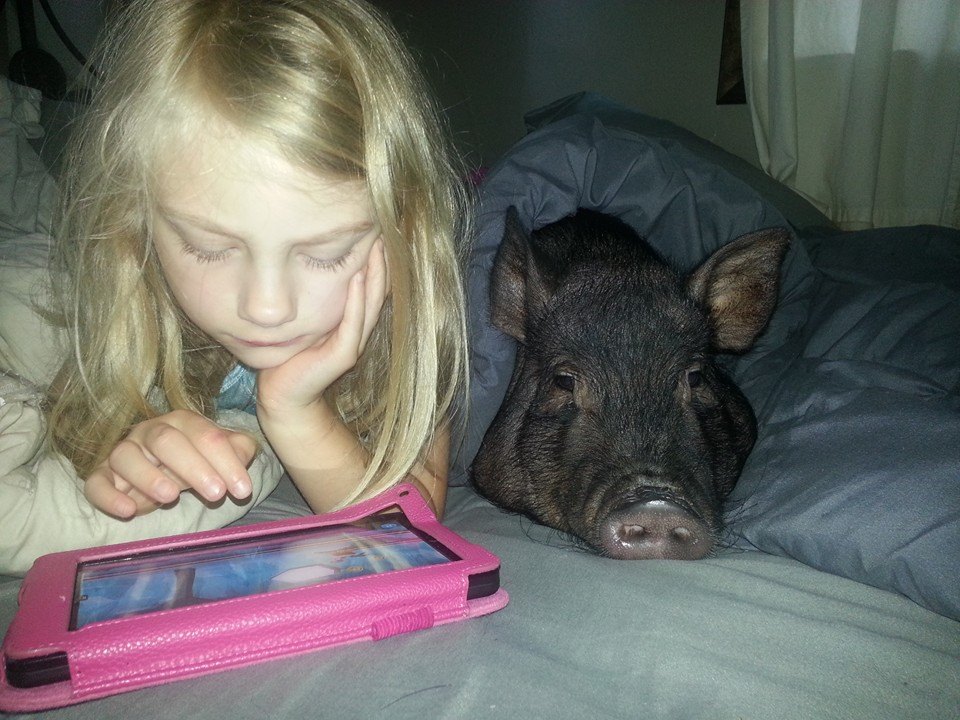

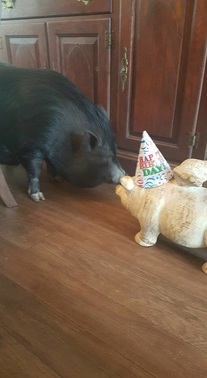
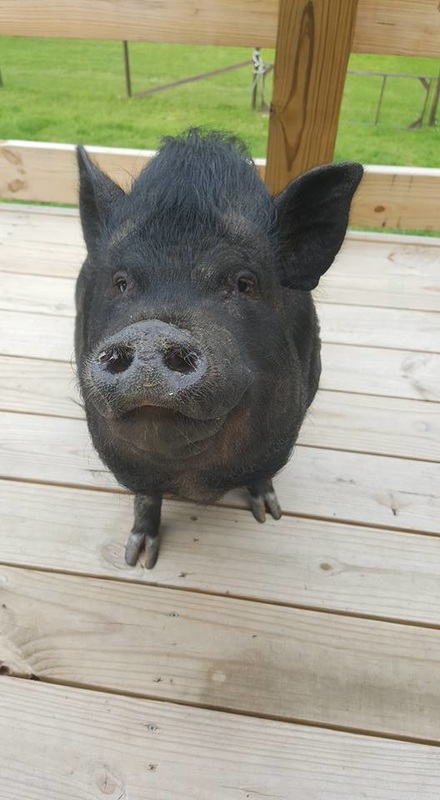
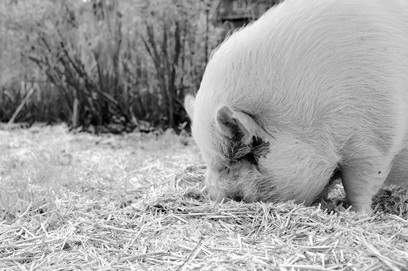
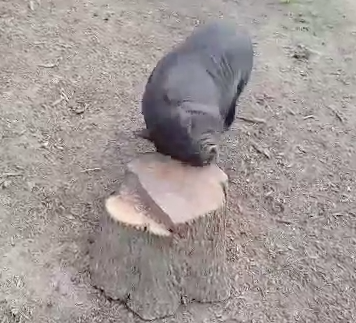
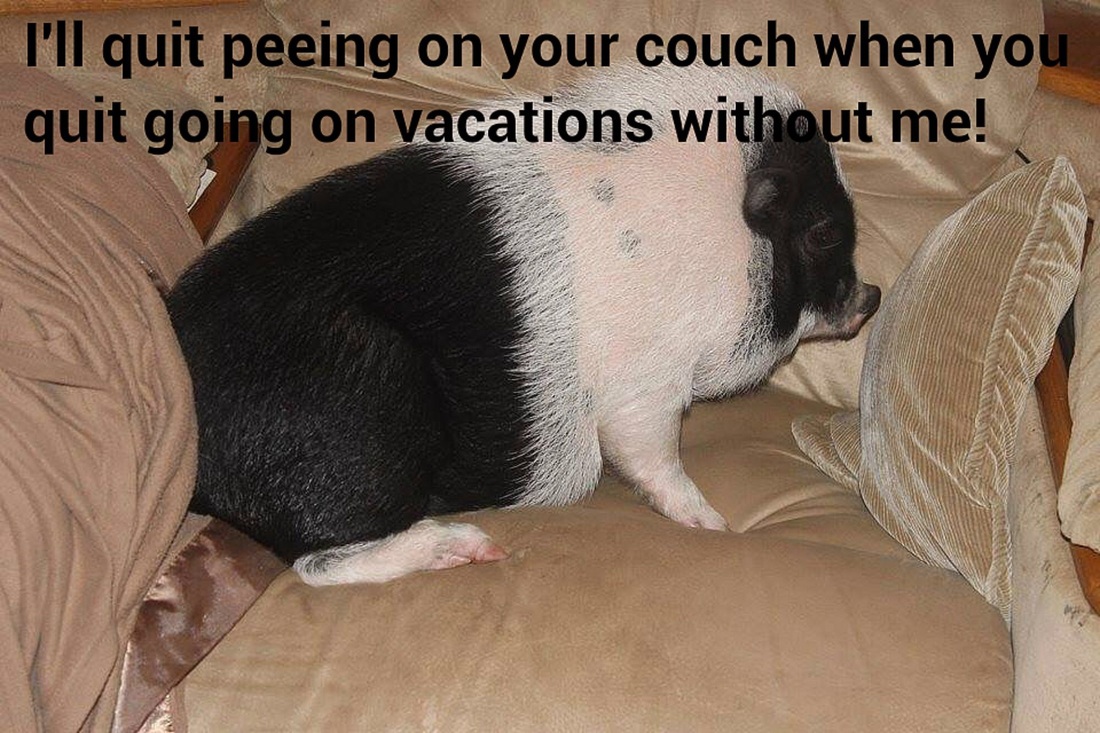
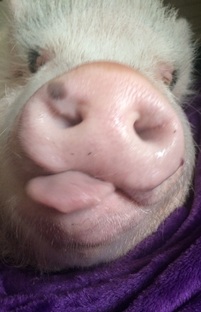
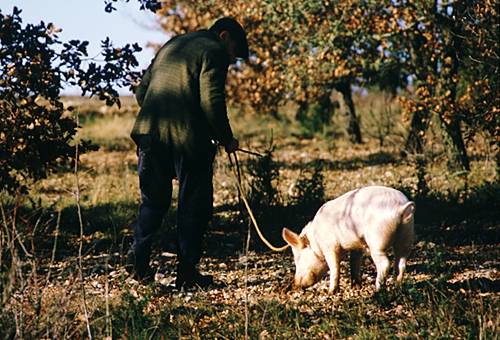
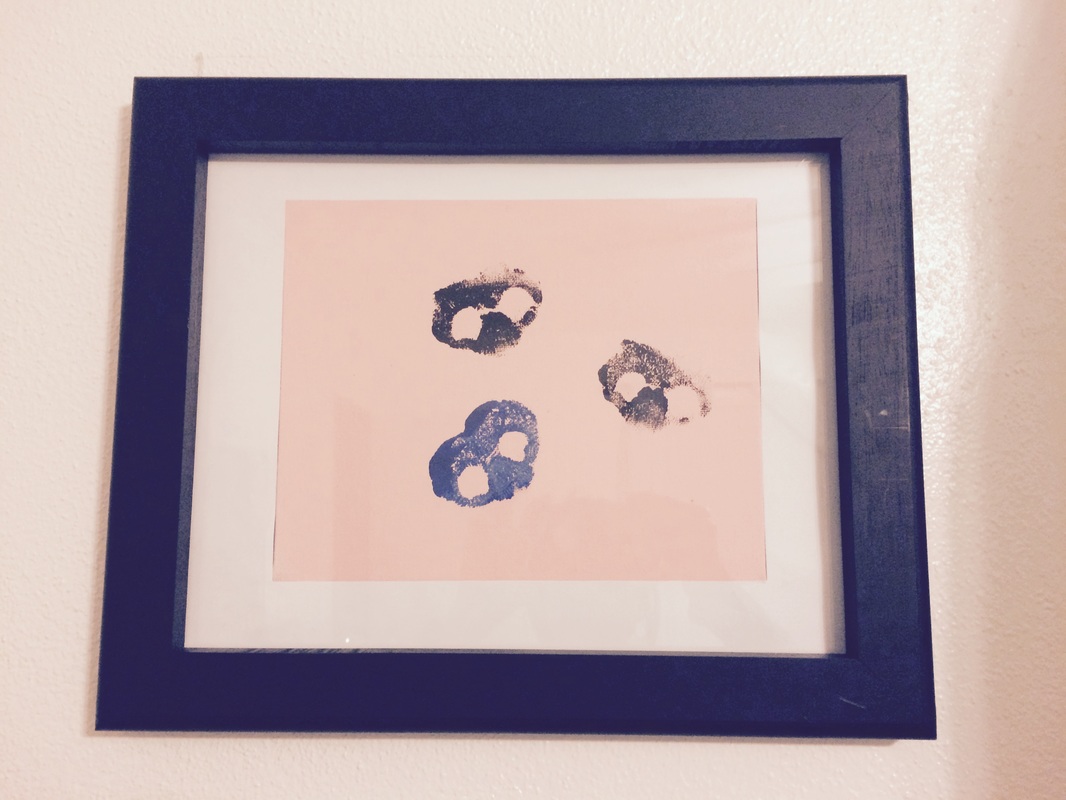
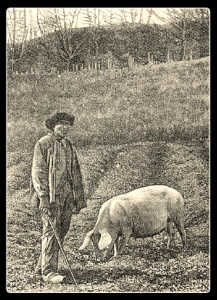
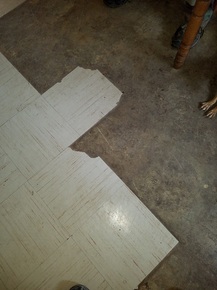
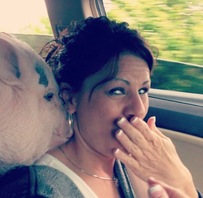
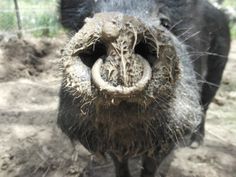

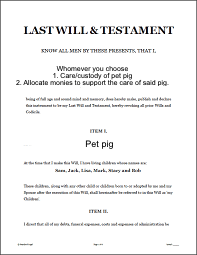
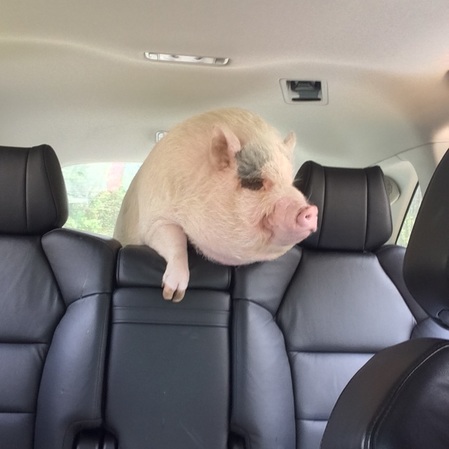
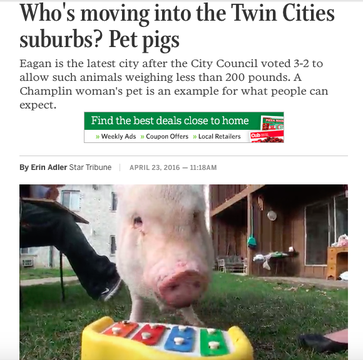
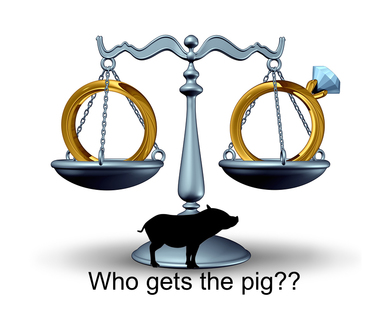
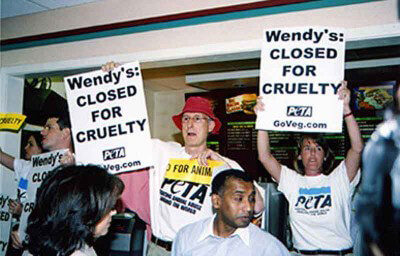
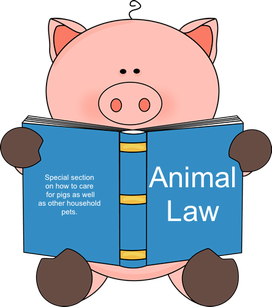
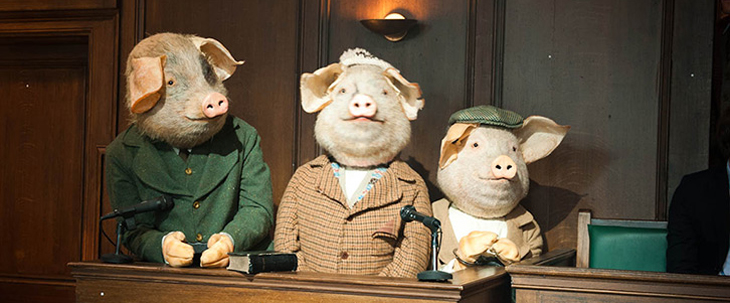
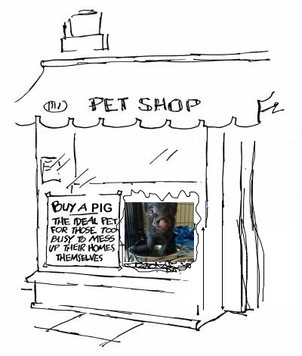
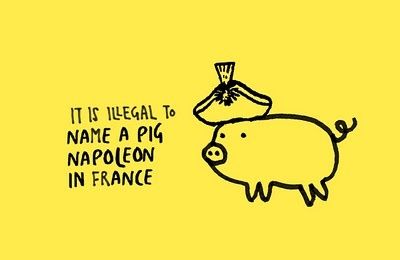


 RSS Feed
RSS Feed